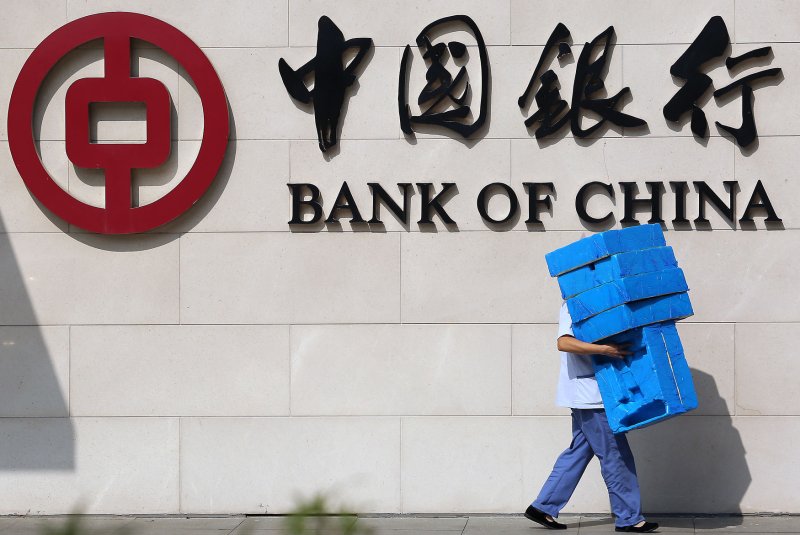China has arrested suspects for illegal foreign-exchange transactions. Underground banking and money-laundering activities totaled $125.4 billion since April, according to state-owned People’s Daily. File Photo by Stephen Shaver/UPI
| License Photo
HONG KONG, Nov. 20 (UPI) -- China has arrested suspects for illegal foreign-exchange transactions totaling $64 billion – in an apparent coup for Beijing's campaign against widespread corruption.
The crackdown took place in eastern Zhejiang province, where more than 370 people were either arrested, face lawsuits or some other penalty, Bloomberg reported Thursday. Underground banking and money-laundering activities totaled $125.4 billion since April, according to state-owned People's Daily.
Organized crime was heavily involved, and among those arrested, 100 suspects from eight gangs were detained, CNN Money reported. The gang's ringleader allegedly runs several shell companies in Hong Kong that were dealing in money laundering and foreign exchange transactions.
The investigations began in September 2014 and in the past year Chinese police sifted through more than 1.3 million shady transactions, according to Xinhua. Authorities subsequently froze about 3,000 bank accounts.
The transactions circumvented China's official limit on capital outflows, restricted to $50,000 per year for Chinese citizens. Those who seek to send capital abroad have sometimes resorted to money laundering ranging from fine art purchases to real estate investments in cities like Vancouver and Sydney. In many cases, Chinese citizens used a tactic called "smurfing," where large sums of money are sent abroad in small increments.
In a separate case related to an underground bank in Fujian, a senior executive of a Chinese state-owned enterprise reportedly tried to move $2.8 million abroad, using a network that included Hong Kong, Taiwan, Australia and Saudi Arabia.
Xi Junyang, a finance professor at Shanghai University of Finance & Economics, said a lot of money is leaving the country legally, owing to rising concerns over the depreciation of the Chinese yuan.
"The government wants to stem outflows and stabilize the yuan's exchange rate, but the outflows cannot be stopped unless people change their expectation on yuan depreciation," Xi said.
China's capital outflows rose to a record $194 billion in September, according to Bloomberg.

No comments:
Post a Comment
Comments always welcome!